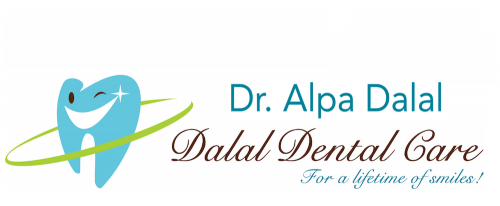Healthy Smiles for Kids
There’s nothing as beautiful as a child’s smile. With good oral care at home and regular dental visits, children can reach adulthood without suffering from tooth decay and other oral health problems.
Diet and Your Child’s Teeth
Plaque (sounds like PLAK) is a sticky film of bacteria that forms on teeth. When plaque is not removed from teeth every day, it builds up. Plaque bacteria use sugar to make acid that attacks enamel, the hard surface of the tooth. The acid can attack tooth enamel for up to 20 minutes after sugary foods and drinks are consumed. These drinks include juices, sodas and sports and energy drinks. Repeated acid attacks can cause tooth decay, which must be treated by a dentist.
Frequent snacks and sips of sugary drinks between meals expose teeth to repeated acid attacks. For good dental and overall health, be sure your child eats a healthy diet. If your child needs a between-meal snack, choose healthy foods. To help prevent tooth decay, save sweets for mealtime.
For ideas about healthy foods and drinks to give your child, see www.choosemyplate.gov.
Keep That Smile Clean
• Brushing teeth twice a day and flossing once a day are important to keep teeth and gums healthy.
• Choose a child-sized toothbrush with soft bristles. Replace it every three months or sooner if the bristles are frayed. Worn toothbrushes won’t clean teeth properly.
• For children under three years old, use no more than a smear or grain-of-rice-sized amount of fluoride toothpaste. Be sure you are in charge of the toothpaste and the child knows it is not food.
• For children three to six years old, use no more than a pea-sized amount of fluoride toothpaste
• Tell your child to spit out the toothpaste and not swallow it.
• Supervise children while they brush their teeth. If they can’t tie their shoes, they shouldn’t brush their teeth alone.
As children grow up and become more skillful, they’ll be able to brush their own teeth. But they may require daily reminders!

For children under three years old.

For children under six years old.
Floss Every Day
Flossing is important to remove plaque from between teeth where a toothbrush can’t reach. Starting when your child has teeth that touch, floss the teeth until your child is old enough to do so himself. Then show your child how to use floss or another between-the-teeth cleaner. Your child’s dentist or hygienist can teach proper brushing and flossing. Look for dental products that display the ADA Seal of Acceptance, which means they meet the ADA standards for safety and effectiveness.
Fluoride, Nature’s Cavity Fighter
Fluoride helps to make teeth stronger and to protect them from decay. It is a mineral that occurs naturally in all water sources. Children who drink tap water that has the recommended levels of fluoride are less likely to get cavities than children who do not drink fluoridated water. Fluoride is also found in anti-cavity toothpastes, mouthrinses and treatments applied in the dental office.
Talk to the dentist about your child’s fluoride needs. Be sure to tell your child’s dentist if you use bottled water or a water treatment system at home. If you live in an area where the tap water does not contain the recommended levels of fluoride, your dentist or physician may prescribe fluoride supplements for your child. In areas that have the right amounts of fluoride in the tap water, children should not take fluoride supplements.
Protect Teeth with Sealants
A sealant is a plastic material that the dentist applies to the chewing surfaces of the back teeth. The sealant flows into the pits and grooves in the teeth, places where a toothbrush can’t reach. Sealants protect teeth from plaque and acid attacks. As long as the sealant remains intact, the sealed surface will be protected from decay.
Why Regular Dental Visits Are Important
Regular dental checkups and dental care-such as cleanings, fluoride treatments and sealants—provide your child with “smile insurance.” Plan your child’s first dental visit within six months after the first tooth appears but no later than the first birthday. Consider it a “well-baby checkup” for your child’s teeth.
At the dental visit, the dental team will:
• check on oral hygiene, injuries, cavities, or other problems
• find out your child’s risk of getting tooth decay
• look at how the teeth are developing
• let you know if your child may later need treatment for crooked teeth or a “bad bite”
• provide advice to help you take care of your child’s oral health
Prevent Sports-Related Dental Injuries
Sports-related dental injuries can be prevented by wearing a mouthguard. Mouthguards can be custom-made by your dentist to fit your child’s mouth. Ready-made or “boil and bite” mouthguards are available at sporting goods stores. Ask your dentist which type is best for your child, especially if he or she wears braces.
Other articles in this section:
Your Child’s First Dental Visit
Tooth Decay in Baby Teeth
Mothers and Babies
Baby Teeth
Sealants
Healthy Smiles for Kids
